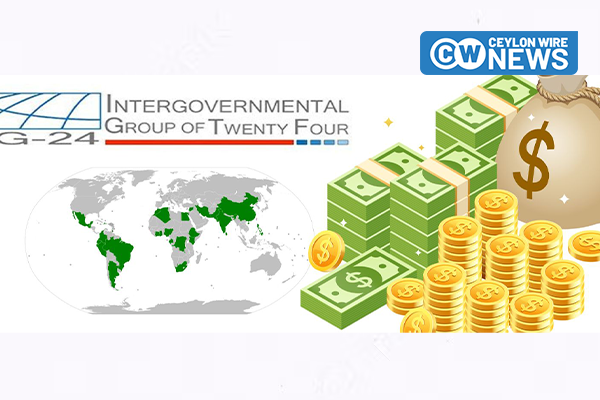Members of the G-24, an intergovernmental group, have voiced apprehension regarding the high and escalating levels of public debt, particularly in many developing countries burdened by unsustainable debt loads. These concerns emerged during the IMF/World Bank Spring Meetings.
The G-24 acknowledges improvements in the global economic landscape but underscores its ongoing uncertainty, especially for countries grappling with reduced access to finance, stringent external financing conditions, elevated debt levels, and inflationary pressures.
In response, the Group advocates for several measures aimed at augmenting financing opportunities for developing nations. These include calls for reforming IMF short-term financing instruments, enhancing concessional financing for low-income countries, revising downward IMF charges and surcharges, and facilitating greater allocation of Special Drawing Rights (SDR) from donor countries to nations in need.
Additionally, the G-24 emphasizes the need for a comprehensive and responsible approach, beyond the G-20 Common Framework, to assist countries in reducing their high debt levels and debt service costs.
The G24 meeting also addressed Sri Lanka’s debt crisis. Iyabo Masha, Director of G24, highlighted concerns over the timeliness and predictability of debt resolution processes, particularly for middle-income countries like Sri Lanka not covered by the Common Framework. Masha called for enhanced global leadership, including IMF and World Bank engagement, and urged cooperation with credit rating agencies to strengthen debt resolution mechanisms.
State Finance Minister Shehan Semasinghe, representing Sri Lanka, participated in the G-24 Finance Ministers and Central Bank Governors’ meeting during the IMF/WB Spring meetings. Semasinghe outlined Sri Lanka’s comprehensive economic reform program, focusing on addressing macroeconomic vulnerabilities through fiscal, monetary, and financial sector reforms, debt restructuring, welfare reforms, and governance improvements. He also noted the stabilization of the economy and the resurgence of growth momentum.
Source – english.newsfirst.lk









